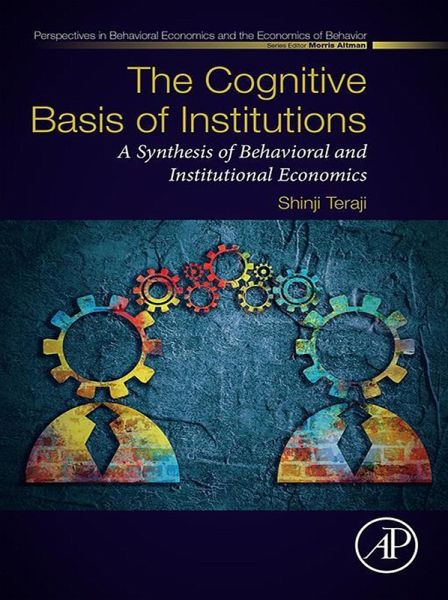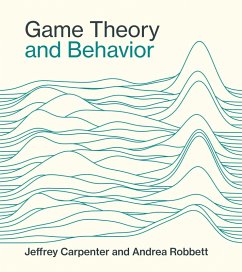
The Cognitive Basis of Institutions (eBook, ePUB)
A Synthesis of Behavioral and Institutional Economics
Versandkostenfrei!
Sofort per Download lieferbar
87,95 €
inkl. MwSt.
Weitere Ausgaben:

PAYBACK Punkte
44 °P sammeln!
The Cognitive Basis of Institutions: A Synthesis of Behavioral and Institutional Economics synthesizes modern research in behavioral economics with traditional institutional economics. This work emphasizes that institution and agent are inextricably linked, and that both cognitive and institutional processes coalesce to influence human decision-making. It integrates cognition and institution through the behavioral economics theoretical lens of bounded rationality. Methodologically, it develops game-theoretical, complexity and neuroeconomic solutions to unite study of the two areas. The work co...
The Cognitive Basis of Institutions: A Synthesis of Behavioral and Institutional Economics synthesizes modern research in behavioral economics with traditional institutional economics. This work emphasizes that institution and agent are inextricably linked, and that both cognitive and institutional processes coalesce to influence human decision-making. It integrates cognition and institution through the behavioral economics theoretical lens of bounded rationality. Methodologically, it develops game-theoretical, complexity and neuroeconomic solutions to unite study of the two areas. The work concludes by proposing general implications for the economic study of decisions using the cognitive-institutional approach, also providing specific recommendations for public policy. - Reveals how institutional structures and individual actions interact and coevolve cognitively - Connects individual decision-making, decision-making processes and institutional formation - Unites our understanding of cooperative 'prosocial' behavior with the institutional dynamics that may create it - Discusses the implications of the behavioral-institutional paradigm for paternalism and libertarianism in public policy
Dieser Download kann aus rechtlichen Gründen nur mit Rechnungsadresse in A, B, BG, CY, CZ, D, DK, EW, E, FIN, F, GR, HR, H, IRL, I, LT, L, LR, M, NL, PL, P, R, S, SLO, SK ausgeliefert werden.













